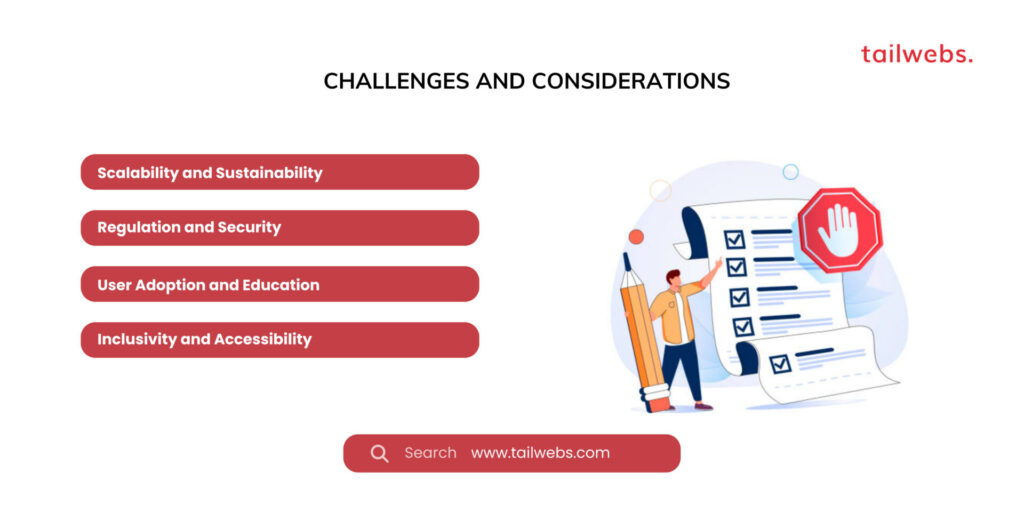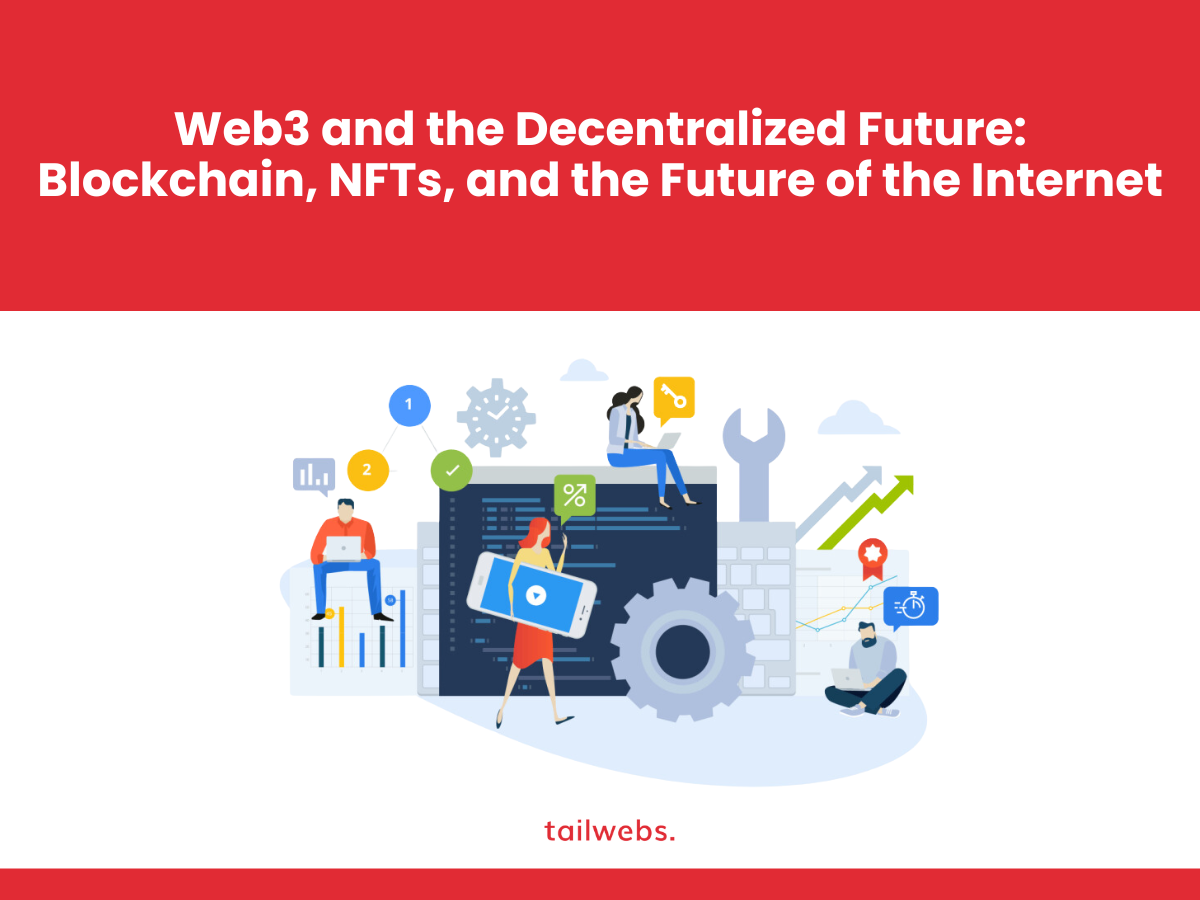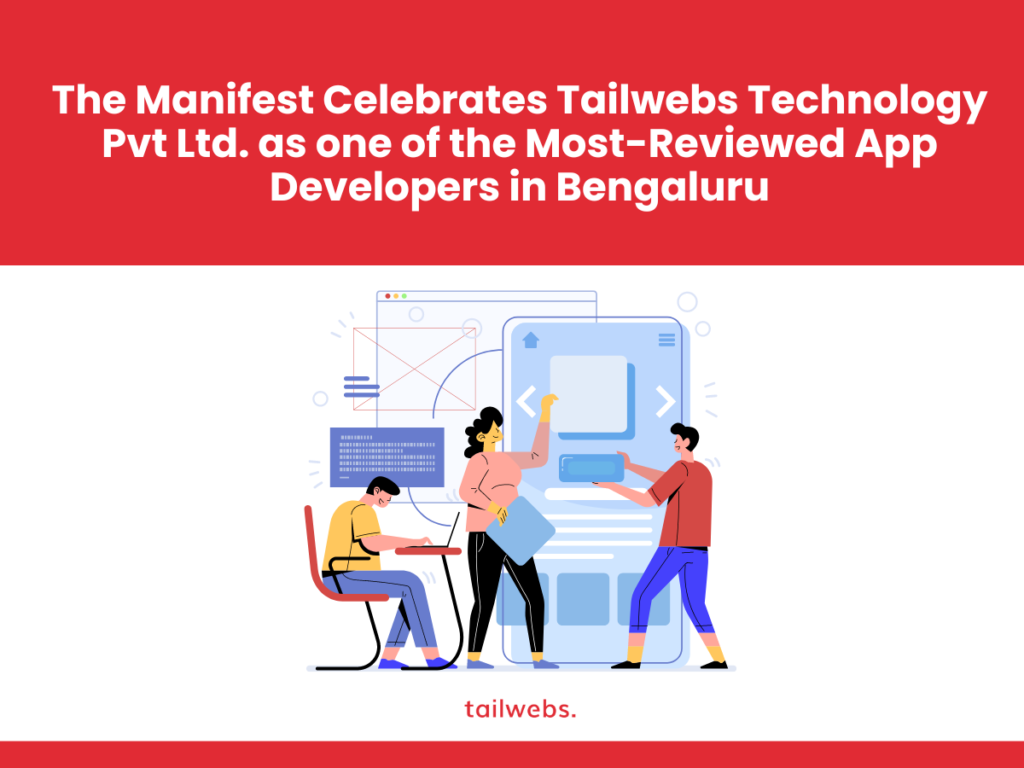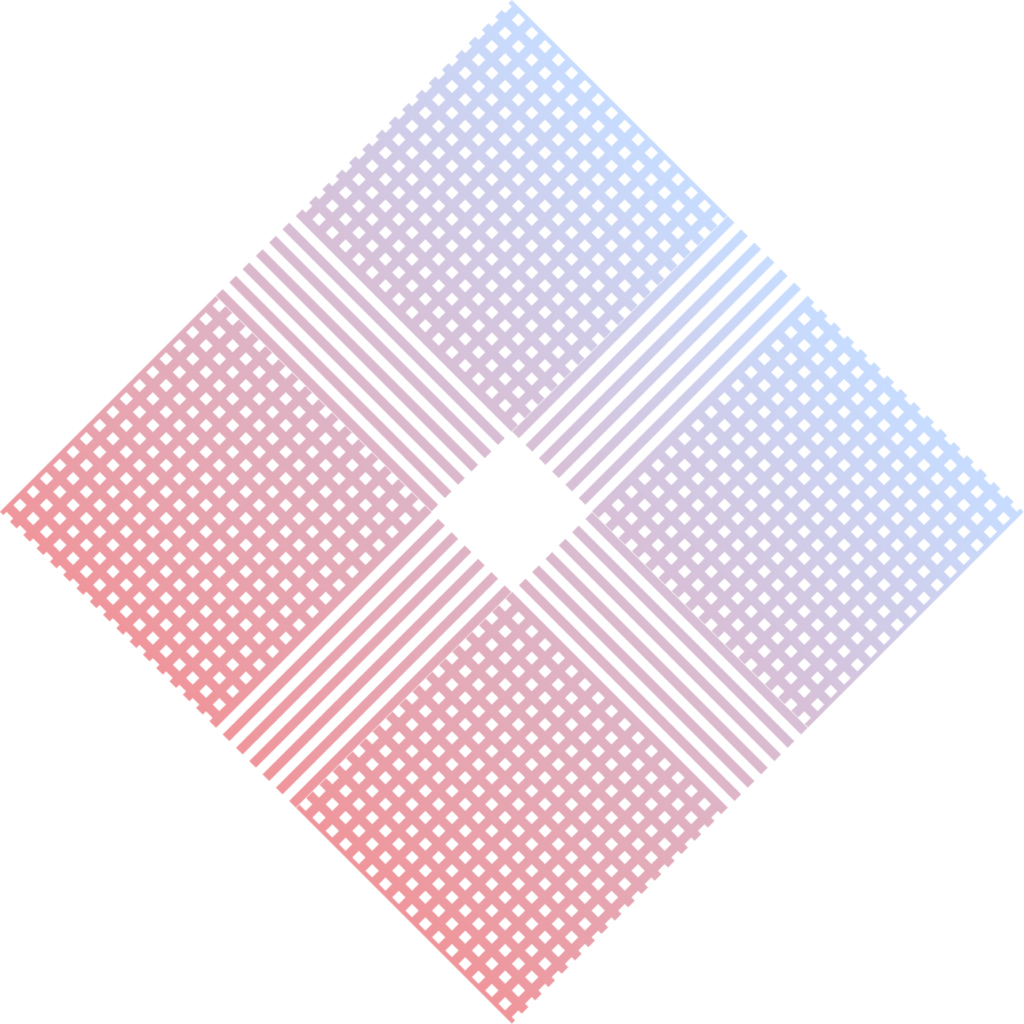Web3 and the Decentralized Future: Blockchain, NFTs, and the Future of the Internet
The internet we know today, Web2, has undoubtedly revolutionized the way we live, work, and connect. However, concerns around centralized control, data privacy, and censorship are growing louder. Enter Web3, the proposed next iteration of the internet, promising a decentralized future built on blockchain technology, NFTs, and a shift in power dynamics. But what exactly is Web3, and what does it hold for the future?
Imagining a Decentralized Web:
Web3 envisions an internet where:
Users own their data:
No longer controlled by centralized platforms, individuals retain ownership and control over their personal information.
Power is distributed:
No single entity dictates the rules; communities collaborate and govern through decentralized protocols.
Transparency reigns:
Blockchain technology ensures transactions and interactions are transparent and verifiable.
New possibilities emerge:
NFTs and other Web3 innovations unlock unique experiences and monetization opportunities.

Stats Highlighting the Demand for Change:
- 83% of consumers globally are concerned about how businesses use their data. (PwC, 2023 Global Consumer Insights Survey)
- 73% of customers say they’re more likely to do business with companies that are transparent about how they use their data. (Deloitte, 2023 Global Consumer Trends Report)
- The global blockchain market is expected to reach $46.8 billion by 2030. (MarketsandMarkets, 2023)
Building Blocks of the Decentralized Future:
Blockchain:
A distributed ledger technology that securely stores and verifies transactions, forming the backbone of Web3’s decentralized infrastructure.
NFTs (Non-Fungible Tokens):
Unique digital assets representing ownership of anything from artwork to virtual land, enabling new models of ownership and value creation.
Cryptocurrencies:
Digital currencies powered by blockchain technology, facilitating decentralized payments and financial services.
Decentralized Applications (dApps):
Applications built on blockchain networks, operating independently of any central authority.
Challenges and Considerations:
Scalability and Sustainability:
Current blockchain technology faces limitations in scalability and energy consumption, requiring ongoing development and solutions.
Regulation and Security:
Evolving regulatory landscapes and potential security vulnerabilities demand careful navigation and responsible development.
User Adoption and Education:
The technical complexity of Web3 necessitates user education and onboarding strategies to foster widespread adoption.
Inclusivity and Accessibility:
Ensuring equitable access and participation in the decentralized future is crucial to avoid exacerbating existing inequalities.

Charting the Course Towards a Thriving Web3:
Building a successful Web3 requires:
Collaboration and Partnerships:
Diverse stakeholders – developers, businesses, users, and regulators – must work together to shape a responsible and inclusive future.
Focus on User Experience:
Simplifying and user-friendly interfaces are essential for mainstream adoption and broader participation.
Innovation and Experimentation:
Exploring new use cases, applications, and protocols is crucial for unlocking the full potential of Web3.
Education and Empowerment:
Equipping users with the knowledge and tools to navigate the decentralized landscape is critical for building trust and engagement.
Recommended Tools and Resources:
Blockchain Education Platforms:
Coinbase Learn, Binance Academy, and ConsenSys Academy offer educational resources on blockchain technology and Web3 concepts.
NFT Marketplaces:
OpenSea, Rarible, and SuperRare enable buying, selling, and exploring NFTs across various categories.
Decentralized Application Platforms:
Ethereum, Solana, and Polygon are popular platforms for building and deploying dApps.
Web3 Communities and Forums:
Online communities like Reddit’s r/web3 and forums like the World Wide Web Consortium (W3C) foster discussions and collaboration around Web3 development.
Industry Research Reports:
Reports from firms like Gartner, McKinsey & Company, and PWC provide valuable insights into the Web3 landscape and trends.

Remember, Web3 is not a finished product; it’s an evolving ecosystem. By acknowledging the challenges, fostering collaboration, and prioritizing responsible development, we can navigate the uncharted territory of Web3 and create a future where the internet empowers individuals, fosters innovation, and benefits all.
Conclusion: Embracing the Decentralized Future with Confidence
Web3 paints a promising vision of a more democratic, transparent, and user-centric internet. While challenges remain, the potential for positive change is vast. From revolutionizing online ownership to fostering new forms of community engagement, Web3 opens doors to exciting possibilities.
The onus lies on us, the builders and users of this emerging landscape, to shape its development responsibly. By actively participating in its evolution, demanding ethical practices, and embracing ongoing learning, we can ensure that Web3 empowers individuals, unlocks collective potential, and truly represents a decentralized future for all.
Remember, you are not just a witness to this transformation; you are a participant.




